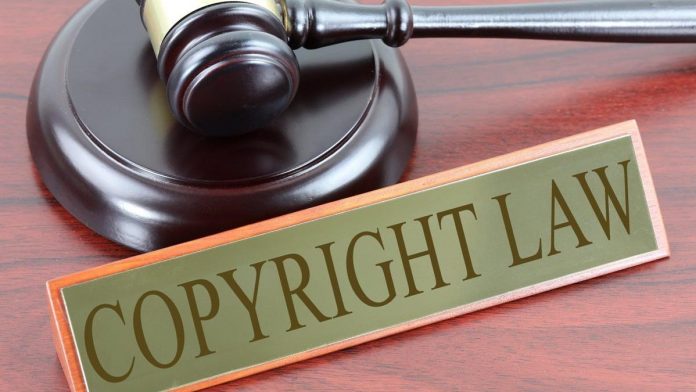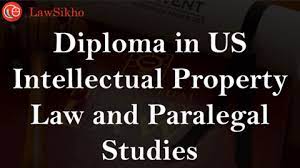This article is written by Athira Soman, pursuing a Diploma in US Intellectual Property Law and Paralegal Studies from LawSikho. This article has been edited by Prashant Baviskar (Associate, Lawsikho), Ruchika Mohapatra (Associate, Lawsikho), and Arundhati Das (Intern at Lawsikho).
This article has been published by Shoronya Banerjee.
Table of Contents
Introduction
In the age of the internet, where billions of people are interconnected, the data created is fathomless. Statistics show that there were 5,10,000 comments posted on Facebook every minute back in 2019 and 77 million new comments being posted every month on blog posts of websites such as WordPress in 2021. These comments are no doubt the product of a person’s intellect, however, are they protected? To understand this, we must first look into what kind of protection can be provided as well as whether such protection can be afforded to these online comments.
Copyrights under the Copyrights Act, 1957 (Hereinafter referred to as ‘the Act) is the protection granted to the creators of original works i.e works of literary, artistic, dramatic, musical nature or cinematographic films and sound recordings. It is essentially a bundle of exclusive rights vested in and exercised by the owner of the copyright. The rights included are the right to sell, right to reproduction, right to translation, right to adaptation, etc as reiterated in Section 14 of the Act. It is an intellectual property, the protection of which commences as soon as an original idea is expressed. The subject matter of copyright protection is the expression of an idea and not the idea itself. As observed by the court in the case of Twentieth Century for Film Corporation v. Sohail Maklai entertainment Pvt Ltd, an idea that is available to the world cannot be monopolised by anyone, it is the presentation of the idea by various people in various original works that are protected.
Online comments as a subject matter of copyrights
For copyrights to subsist in comments, they must be a subject matter that is protected under copyright law. The court in the case of Shyam Lal Paharia v. Gaya Prasad Gupta, clarified that literary works meant not only literature in prose or poetry but anything in writing or print would fall within its ambit. Hence, online comments being the expression of thought in a written manner may fall within the ambit of a literary work.
However, for it to receive copyright protection, it must not only be a literary work but original. The jurisdictions around the world have evolved various tests of originality through judicial precedents. Whether it be the test of originality which requires that the author has produced a non-copying work i.e it has not been copied from another work and the threshold of originality that has been established in various courts.
In the United Kingdom, the Sweat of the brow doctrine is followed, which states that copyright protection is given to the work of an author in exchange for the labour, skill, or judgment put into it. The court ruled in the landmark judgment of University of London Press v. University Tutorial Press, that the expression of thought in writing or print need not be in a novel form but must originate from the author and his labour and skill must be put in.
On the other hand, in the United States, there was a shift from the doctrine of independent creation to the doctrine of a modicum of creativity. While the doctrine of independent creation relied on the labour and talent of the author to provide copyright protection, the modicum of creativity doctrine relies on the work where a sufficient amount of intellectual creativity i.e a minimum level of creativity and judgment has been put into the work. This doctrine was applied in the landmark judgment of Feist Publications Inc v. Rural Telephone Service Co, where the issue was whether a compilation of telephone numbers in a directory was copyrightable. It was held to not have copyright protection as there was no creativity involved and lacked the requisite originality.
India follows the doctrine of merger as the sweat of the brow doctrine has been rejected and we shifted to the modicum of creativity doctrine, introducing the flavour of the minimum requirement of creativity in the landmark judgment of Eastern Book Company v. D.B Modak, where the copyright protection was given to the additions made to the judgments by the editors and not to the judgments and orders themselves which were in the public domain.
Hence, whether an online comment is subject to copyright protection would differ on a case-to-case basis and blanket protection to all the comments cannot be given, it would not only depend on the labour put into the comment but also the level of creativity.
Who owns the copyright to online comments?
Considering that an online comment does fulfill the criteria of originality, the next question would be who owns the copyright to them, which would depend on who owned the comment itself, the author of the comment, the owner of the content where the comment is written or the owner of the website on which it is published. For example, according to the YouTube Terms of Service, ‘content’ includes all the texts including comments generated by users on the website and the ownership of the content is retained by the user who generates it. However, there is also a licence that is royalty-free, sublicensable, and transferable provided to YouTube by agreeing to the use of their service that enables the service provider to reproduce, distribute, prepare derivative works and use it for other related purposes.
Similar to this model, most major social media platforms like Reddit, Instagram, Twitter, etc., allow the retention of ownership rights over the original contents of the user while reserving a royalty-free, transferable and non-exclusive license to use, distribute, host, copy, create derivative works, etc., from the contents. Since the ownership of the content, in this case, the online comments rests with the original poster, any copyright that lies in these comments will be owned by the original poster. Comments of the user that appears publicly on a platform, are also classified under the user-generated content over which the user has copyright.
In the case of blogs or forums, where online comments are allowed, since there are no written terms to show ownership of the comments, it would rest with the original commenter. While an implied license is created due to the absence of a formal agreement to allow the display of the comments. However, this type of licence is unreliable for the blog or forum owners to use the comments without the permission of the original poster as the rights provided by the implied license would only be up to the extent of allowing the proper functioning of the blog or forum and not to allow reproduction or any other infringement of the copyright that may be vested in the comment i.e it may not be an implied copyright license.
Consequences of copyright protection of comments
Unlike other forms of content, if a blanket copyright protection is provided to online comments, it could lead to the institution of several frivolous suits leading to burdening the already overburdened courts. There are also possibilities of suits being filed with malicious intent by the copyright owners of the online comments. It would also cause several hurdles to the owners of the original content where the online comments are posted, for example, they would require permission from each individual commenter who is a right-holder when sharing or recreating a particular page, leading to the owner of the original content of the page with no absolute control over that page.
What about copyright violations via online comments?
Of course, the easiest method to ensure that no copyright of an online comment is infringed would be to not let anyone comment in the first place. But this would defeat the purpose of such platforms where there is a discussion of opinions of the various users and an exchange of ideas and knowledge.
Licensing through click-wrap agreements
Clickwrap agreements are essentially unilateral digital or electronic contracts that require the user to agree to certain conditions before using a platform or software, usually presented by an “I accept” that must be checked.
One of the widely used clickwrap agreements to ensure that no copyright infringement takes place by a platform owner are extensive terms and conditions that allow the fair use of online comments. A platform owner in their terms of use may include the proprietary rights clause that acknowledges the ownership of the user over their own content but also have them agree to provide the platform with the necessary license to use, distribute and publish the content on the platform. A way to report and remove copyrighted content must also be provided to ensure the platform is not held legally responsible for the infringement of copyright.
Blog or forum owners may provide an additional clause in the clickwrap agreements that allow them to use the comments on their page without infringing any copyright. This would mean that even if the comments of a blog were to be used in a book where all the blog posts were compiled, there would be no copyright infringement.
While Clickwrap contracts are internationally recognised and enforceable as long as they do not contain oppressive or unconscionable terms, in India, their enforceability depends on various factors such as free consent being actively taken from the user. As long as the unilateral contract is consented to act and there is equal bargaining power, it is a valid and enforceable contract.
Creative Commons License
Another method to ensure that no copyright infringement of an online comment occurs is to get the original commenters to agree that their comments would fall under creative commons through a license. Creative Commons License not only allows the original creators, in this case, the commenters, to retain the copyright on their comments but also allows others to make use of this work by way of copying, distributing, etc. This ensures that due credit is given where it is required while also not interfering with the use of the content. These licenses also make it possible to use the work without contacting the creator or any negotiations.
Conclusion
In general, there is only vague copyright protection of online comments, and this reluctance to recognise the protection of online comments is understandable due to the consequences that may arise from full-blown protection given to them. Although clickwrap agreements may be a solution to this issue, certain amendments to the legislation that recognise and enforce them would be necessary for its better implementation. There is also a need for uniform regulations as it is hard to ascertain jurisdiction in the online world. Hence, only after some clarity is gained on how online comments gain copyright protection through guidelines and other judicial precedents there can be further discussion about the same. However, It is high time the protection of copyright is brought into mainstream discussions and debates to ensure that the legislative intent of the Copyright Act is preserved and the legitimate owners of the right can exercise them freely.
Students of Lawsikho courses regularly produce writing assignments and work on practical exercises as a part of their coursework and develop themselves in real-life practical skills.
LawSikho has created a telegram group for exchanging legal knowledge, referrals, and various opportunities. You can click on this link and join:
Follow us on Instagram and subscribe to our YouTube channel for more amazing legal content.
 Serato DJ Crack 2025Serato DJ PRO Crack
Serato DJ Crack 2025Serato DJ PRO Crack











 Allow notifications
Allow notifications


